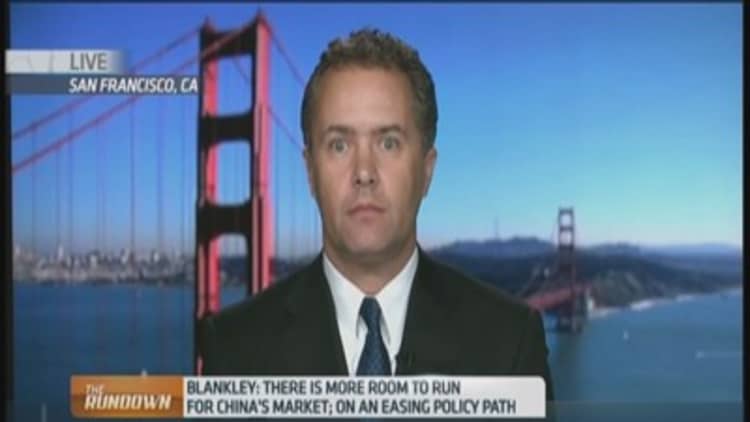Sharply lower oil prices are widely hailed as a positive for most Asian markets, but that hasn't slowed fund outflows or raised growth forecasts much.
Over the past week, foreign investors have pulled around $2.16 billion out of Asia Pacific focused mutual funds and exchange-traded stock funds, according to data from Jefferies. That's despite oil prices dropping last week to their lowest levels since 2009, the seventh straight week of declines – a move widely seen as a positive for a region where most countries are net oil importers.
Read More Who will be the darling of EMs this year?
"It's clearly beneficial to Asia," said Stuart Rae, chief investment officer for Pacific Basin equities at AllianceBernstein. But he added, "It's not as direct as you might think."
Indirect effect
In the U.S., oil's share of consumption -- including gasoline for cars -- comes in around 6 percent for the average consumer and 12 percent for the poorest 20 percent of consumers, Rae estimated. Separately, Societe Generale has estimated the oil price drop would free up an average of $700 per U.S. household this year.
"That's an instant boost for consumption in the U.S. The same is not true in Asia because you don't have the same penetration of cars," Rae said. "There's not a direct pass through to the average consumer … it's second order."
For example, Rae noted that Indonesia has been able to slash its oil subsidies, likely freeing up 2 percent of its gross domestic product (GDP) from its budget, about half of which will likely be spent developing infrastructure. While it's good for Indonesia's longer-term economic growth, "for the consumer, they don't see that. It's behind the scenes," he said.
Others also noted that the effects of lower oil prices don't always trickle down to Asia's consumers.
"In Indonesia, India, Malaysia, and to some extent Thailand, recent cuts to fuel subsidies mean that consumers have not received as big a boost to their purchasing power as the fall in international oil prices might imply," HSBC said in a note last week. HSBC also expects the fiscal savings to head toward infrastructure spending, but notes that's not an "instantaneous" growth boost.
Not entirely positive
HSBC also noted lower oil and commodity prices aren't entirely beneficial around the region.
"While the plunge in the cost of crude helps most of Asia, in [Southeast Asia], Australia and New Zealand it's not entirely positive news," HSBC said. "Apart from deteriorating terms of trade that squeeze national income, capital spending in the natural resource sector may also come under (further) pressure, restraining growth more broadly." It noted much of Malaysia's large infrastructure program is expected to be financed with oil revenues, with additional pain likely to come from falling prices of other key exports: rubber and palm oil.
Read More Should yield chasers set their sights on Australia?
Another reason declines in oil and other commodities may not be helping shares in net importer Asia much: it's set to dent company earnings.
"Asia is a net oil importer, but the energy and materials sectors account for about 15 percent of earnings" in the MSCI Asia Pacific ex-Japan index (MXAPJ), Goldman Sachs said in a note last week. "For other sectors, the positive effect of higher revenues and lower oil input costs will be felt with a lag."

It cut its earnings forecast for the index by two percentage points to 6 percent for this year, although it raised its 2016 forecast by one percentage point to 11 percent.
In addition, just because companies in places such as Japan, China and South Korea may get a profit fillip from lower energy prices doesn't mean they will "pay it forward" into higher wages or capital spending, which would boost quickly boost economic growth, HSBC said.
—By CNBC.Com's Leslie Shaffer; Follow her on Twitter @LeslieShaffer1


